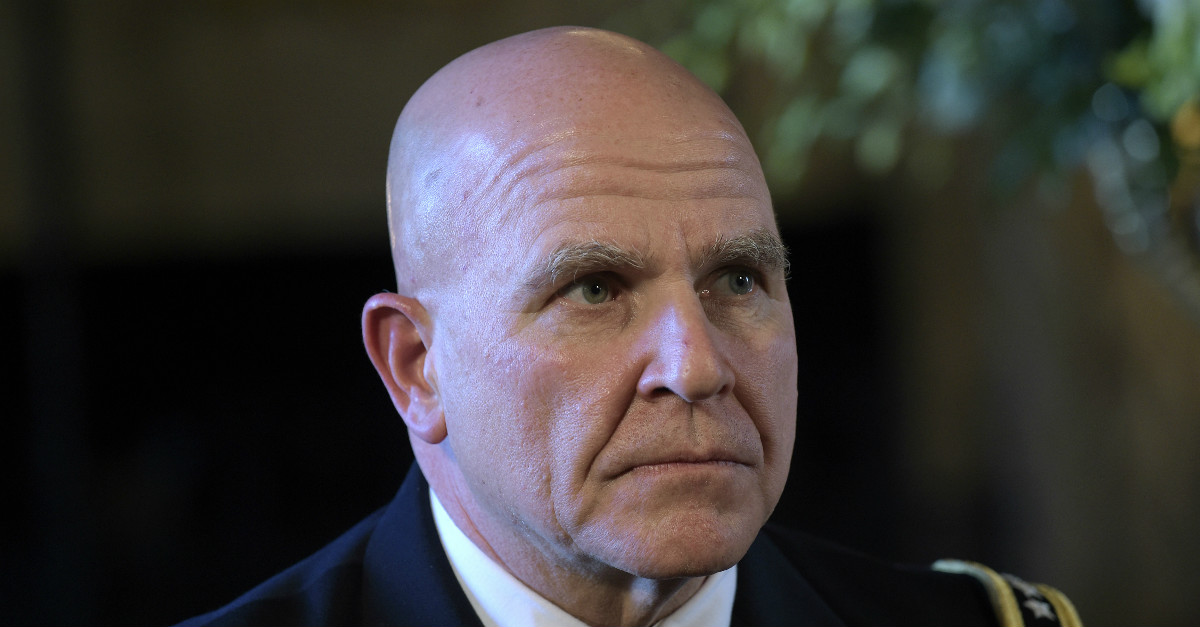About the worst you can say about Lieutenant General H.R. McMaster, President Donald Trump’s next national security advisor, is that he’s stubborn and quick to question his superiors. But many people, including myself, don’t necessarily consider those qualities disqualifying – better to have a military man with the gumption and principle to push against the system than someone who does his job blindly.
Videos by Rare
This is exactly what President Trump will get with H.R. McMaster.
McMaster was appointed the deputy commanding general of the U.S. Army Training and Doctrine Command in July 2014. His creation of the Russia New Generation Warfare Study, reported on by Politico’s Bryan Bender last year, was quintessential McMaster, a project that forced the men and women working on it to take an on-the-ground, deep-dive look at Moscow’s hybrid method of waging war. In effect, McMaster was being asked to do a job that he loved, one that encouraged the kind of out-of-the-box thinking that helped catapult him to international fame in 2005 when he first introduced his counterinsurgency doctrine in Tel Afar, Iraq.
McMaster is a legendary battlefield commander. During the Persian Gulf War in 1991, his armored company came across one of Saddam Hussein’s Republican Guard tank units, a force that was far larger than what the Americans had at their disposal. It could have been a bloodbath for U.S. forces. Instead, thanks in large measure to McMaster’s leadership, the Iraqis were the ones who walked away bloodied. The battle in the western Iraqi desert lasted less than a half hour and destroyed 25 Iraqi tanks, 16 personnel carriers, and 30 trucks. That military engagement has been studied by historians ever since.
RELATED: Flynn’s departure means one less Iran hawk in the White House — and that’s great news
McMaster, however, will now be entering a new battlefield called the Washington bureaucracy, terrain as unforgiving as the Iraqi desert under the blazing hot sun. McMaster doesn’t have much experience here, and he will be going up against others in the State Department, Defense Department, intelligence community, and Capitol Hill who have been working the system for decades.
The national security advisor position can be one of the most powerful in the entire executive branch a la Henry Kissinger, or it can be a disaster show a la John Poindexter. Condoleezza Rice, President George W. Bush’s first national security advisor, was initially unable to navigate the big egos of Colin Powell, Dick Cheney, Donald Rumsfeld and George Tenet. Jim Jones, President Obama’s national security advisor from January 2009 to October 2010, was never able to strike a personal relationship with the president and often complained that Obama’s former campaign aides were stepping on his turf (speaking with Bob Woodward, Jones called David Axelrod, Rahm Emanuel, Denis McDonough and Robert Gibbs the “Politburo”).
If the national security advisor is on the outside looking in, he can quickly find himself marginalized from some of the most critical national security decisions that the president makes.
RELATED: The phrase “deep state” has now entered our popular lexicon. That’s a good thing
This is McMaster’s challenge. He will be entering a National Security Council that is still recuperating from the scattershot, paperless process that Mike Flynn briefly ran. If news reports are to be believed, career NSC staff are demoralized and worried that they could be shown the door at any second. McMaster’s first order of business will be to instill a confidence within the NSC staff.
If McMaster’s career in the army is a precedent for how he will approach his new job in Washington, President Trump can expect McMaster to tell him when he’s wrong, when his assumptions need to be fine-tuned and when people on the White House staff aren’t serving him well. The question is whether President Trump will give McMaster the freedom to run the NSC in the way he believes it must be run.



